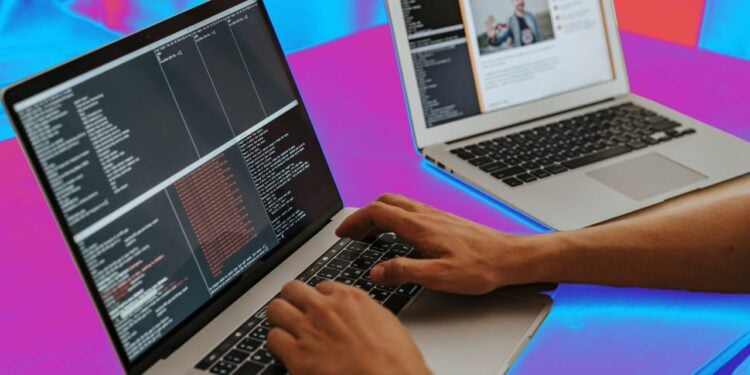- Remote work represents a profound cultural shift, highlighting the importance of trust and accountability in the absence of physical oversight, with businesses embracing these changes to maintain a cohesive and empowered workforce.
- Effective communication using clear guidelines for technology tool usage is crucial to overcoming remote work challenges, while maintaining a healthy work-life balance requires conscious efforts like end-of-day rituals and flexible scheduling to combat the risks of isolation and burnout.
- Strategic use of technology plays a crucial role in enhancing remote work by streamlining tasks.
The world of work is undergoing a seismic shift, with remote work at the epicenter of this transformation. My conversation with Brendan Chard, owner of The Modern Firm — a one-stop-shop marketing firm for small law firms — provides valuable insights on the intricacies of managing a business that operates entirely in the digital realm.
The Genesis of Remote Work at The Modern Firm
Fifteen years ago, The Modern Firm embarked on its transition to a fully remote operation, which was spurred by a blend of personal circumstances and the advent of collaborative tools like Dropbox and Skype. This pivotal decision marked the beginning of an era where geographic boundaries ceased to limit talent acquisition, proving that a company could thrive outside the conventional office setup.
The Modern Firm’s experience is a testament to the transformative power of remote work, which has become ingrained in their culture, processes, and technological framework.
Transitioning to remote work is more than just a logistical change; it’s a cultural revolution.
Transitioning to remote work is more than just a logistical change; it’s a cultural revolution. Trust and accountability emerge as the bedrock of this new model.
Unlike the traditional office environment where oversight is tangible, remote work necessitates a shift towards a trust-based model. The Modern Firm’s journey highlights the importance of building a culture where trust is paramount — ensuring that team members feel valued and empowered despite the physical distance.
Communication stands as one of the most formidable challenges in a remote setting. The abundance of tools at our disposal can lead to confusion and inefficiency if not managed properly.
The Modern Firm’s approach to this challenge involves setting clear guidelines for tool usage, ensuring that every piece of technology serves a distinct purpose, thereby streamlining communication and maintaining a cohesive digital workspace.
Addressing the Isolation and Burnout Conundrum
One of the less discussed aspects of remote work is the potential for social isolation. The absence of a physical office removes the built-in social interactions that many take for granted.
For individuals like Brendan Chard, who thrive on social engagement, finding alternative avenues for interaction is crucial. Engaging in local professional groups and incorporating social activities into the daily routine can mitigate the effects of isolation, enhancing overall well-being and job satisfaction.
Remote work, while liberating, introduces unique stressors that can lead to burnout.
The Modern Firm’s experience sheds light on several factors contributing to this phenomenon, including the challenge of separating work from personal life, the constant presence of household tasks, and the pressure to be perpetually available online.
Addressing these issues requires a multifaceted approach, emphasizing clear expectations, self-awareness, and strategic use of technology to streamline work processes.
Empowering Managers in a Remote Environment
In a remote setting, managers play a critical role in maintaining team cohesion and well-being. The Modern Firm’s strategies offer a blueprint for success, emphasizing the importance of clarity in expectations, encouraging time off, and adopting a flexible approach to work schedules.
Managers must be mindful of the potential for disruptions in a remote environment, striving to minimize interruptions and afford employees greater control over their time.
Managers must be mindful of the potential for disruptions in a remote environment, striving to minimize interruptions and afford employees greater control over their time.
For remote employees, delineating the line between work and personal life is paramount. Practicing end-of-day rituals can help maintain this balance.
Utilizing communication tools effectively and minimizing notifications can also help employees stay focused during work hours and fully disengage during personal time, contributing to a healthier work-life balance.
One of the most empowering things a manager can do is to encourage employees to work flexibly, working during the hours that they prefer, so long as they are accomplishing all duties and not overworking.
The Role of Technology in Enhancing Remote Work
In remote work, technology serves not just as a facilitator, but as a transformative force that reshapes how tasks are performed, how teams communicate, and how businesses measure success.
Data speaks volumes in the intricate world of marketing, so presenting information to clients in a clear, concise, and compelling manner is crucial. The Modern Firm’s most impactful technology update was switching to an industry-specific analytics platform that cut out complexities and shortened reporting time.
Enhancing its reporting efficiency did more than just save time; it elevated the firm’s professionalism and reinforced client trust by delivering clear, actionable insights with a polished aesthetic.
Beyond the efficiency gains, using the right tech tool improved client engagement for The Modern Firm. The platform’s real-time reporting capabilities provided clients with up-to-date insights into their marketing campaigns, fostering a transparent and collaborative working relationship.
This immediacy and clarity in communication are particularly valuable in a remote work context, where building and maintaining client trust can be challenging due to the lack of face-to-face interactions.
Doing the up-front work to find technology tools that best optimize remote work for your company — solutions for tasks like meeting scheduling, video conferencing, and asynchronous communication — can pay big dividends in remote work success.
The advent of AI tools has introduced new possibilities for enhancing productivity and creativity in the remote workplace. In creative and marketing fields, where the generation of ideas and content is paramount, AI tools can significantly reduce the cognitive load associated with routine tasks.
For The Modern Firm, AI applications like ChatGPT have unlocked creative potential by providing a starting point for ideation, effectively reducing the time spent staring at a blank page and allowing for more focused, deep work on substantive tasks.
Conclusion
Navigating remote work requires a holistic approach, encompassing cultural, operational, and technological adaptations, as I tell my clients in helping them figure out a flexible work model for their companies.
By fostering a culture of trust, streamlining communication, addressing the challenges of isolation and burnout, and leveraging technology, businesses can unlock the full potential of remote work. With the right strategies, remote work can be a catalyst for innovation, employee satisfaction, and unparalleled business success.
With the right strategies, remote work can be a catalyst for innovation, employee satisfaction, and unparalleled business success.


















